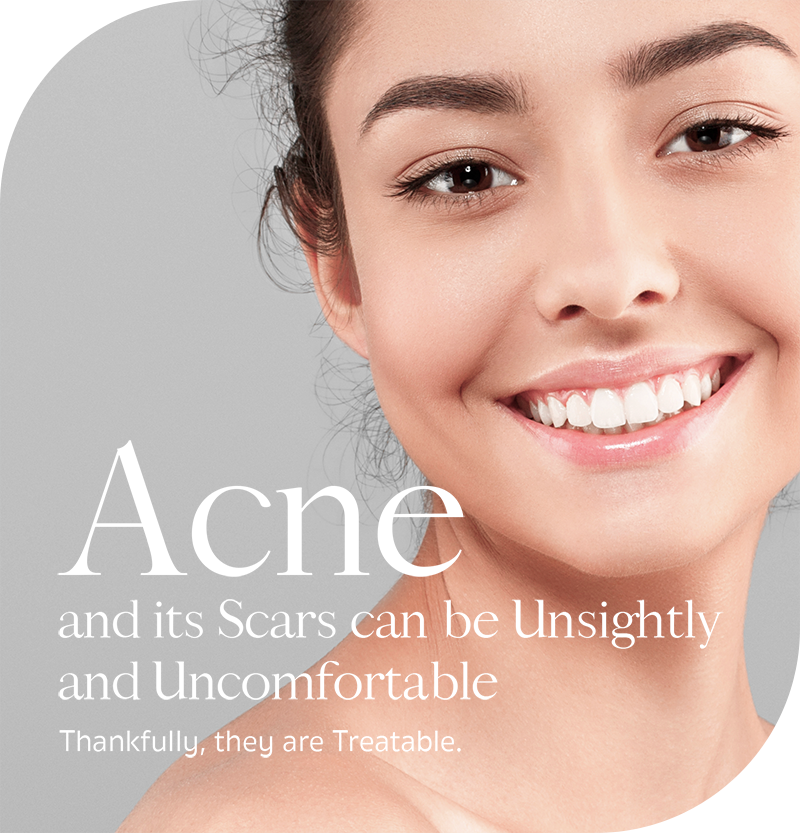Commonly seen as a rite of passage as people transition through puberty (though acne sometimes persists into adulthood); these red, painful and sometimes pus-filled bumps are commonly found on the face, chest and back.
Prompt treatment should be sought because acne is not just a cosmetic issue—it is also a medical one that affects the skin, caused by clogged pores, bacteria and excess oil. In treating these factors, we can regain healthy skin again.
Furthermore, the unsightly nature of acne and the scars left behind can also cause one to suffer from low self-esteem, making treatment even more important.



